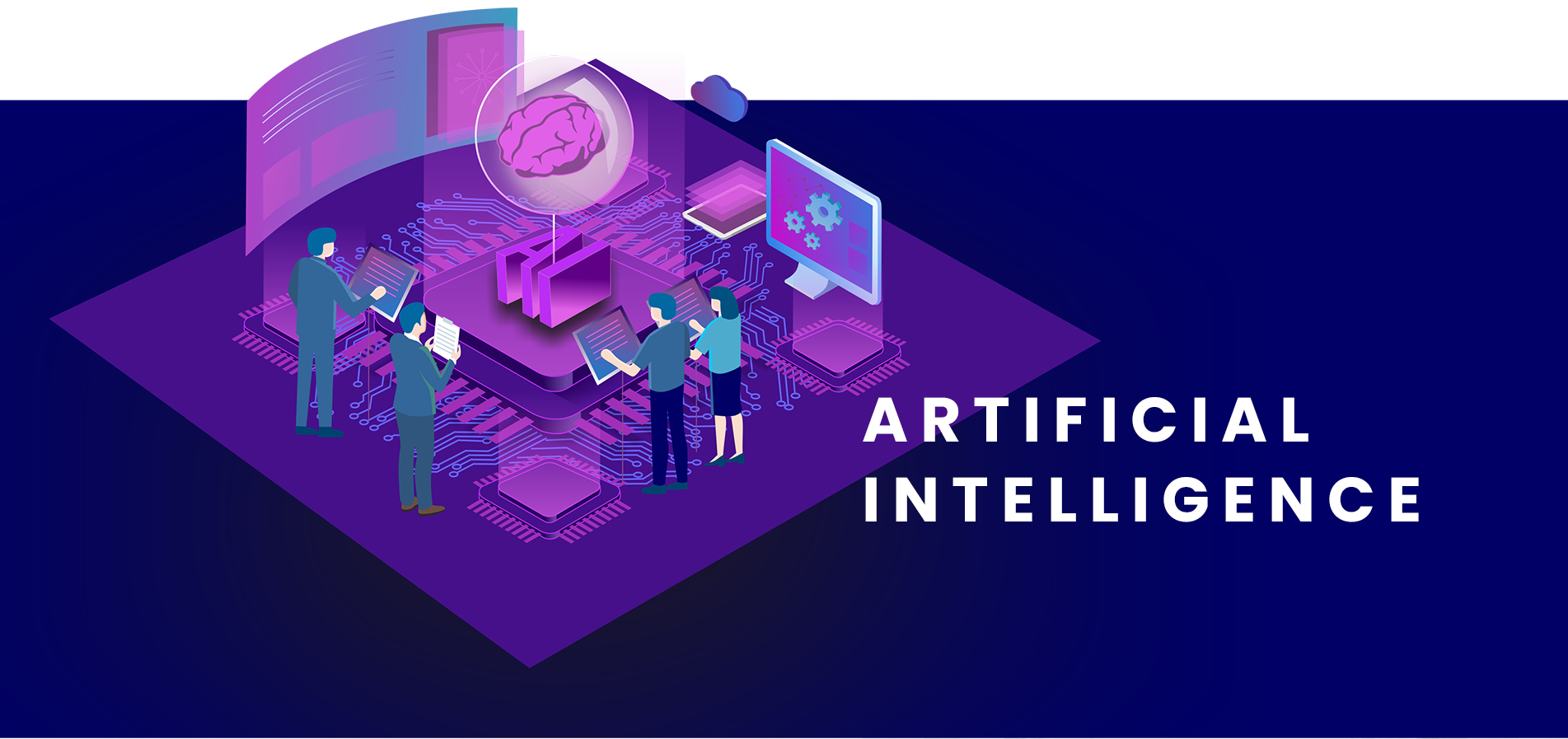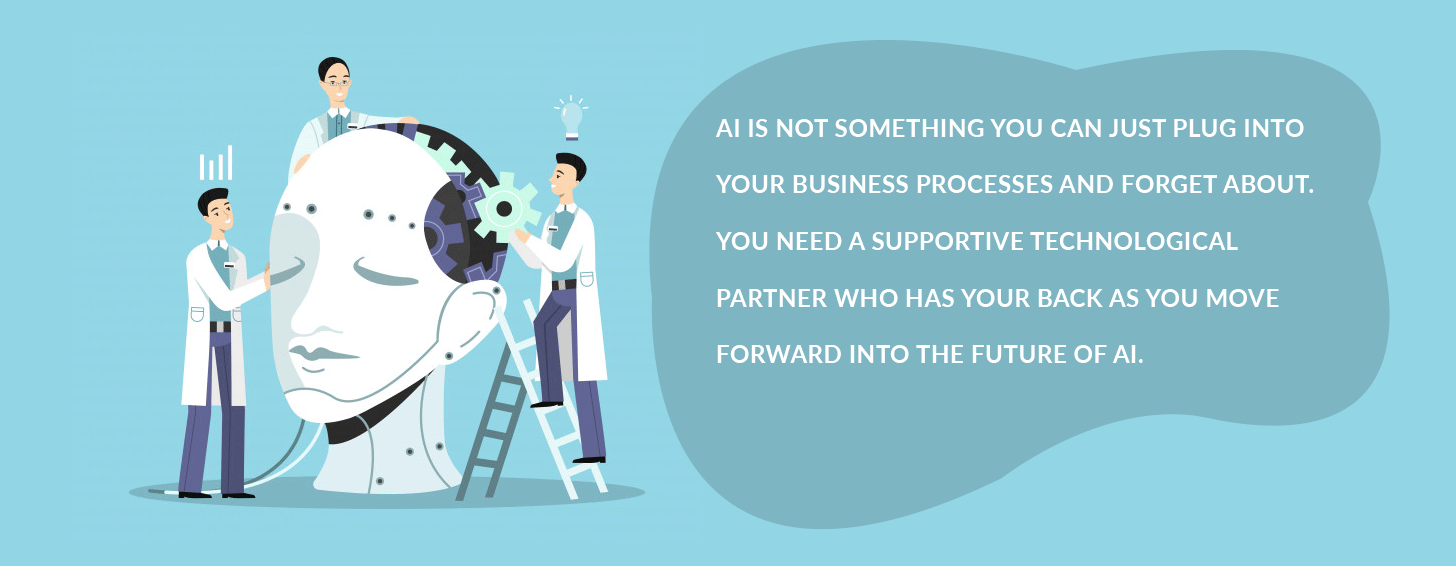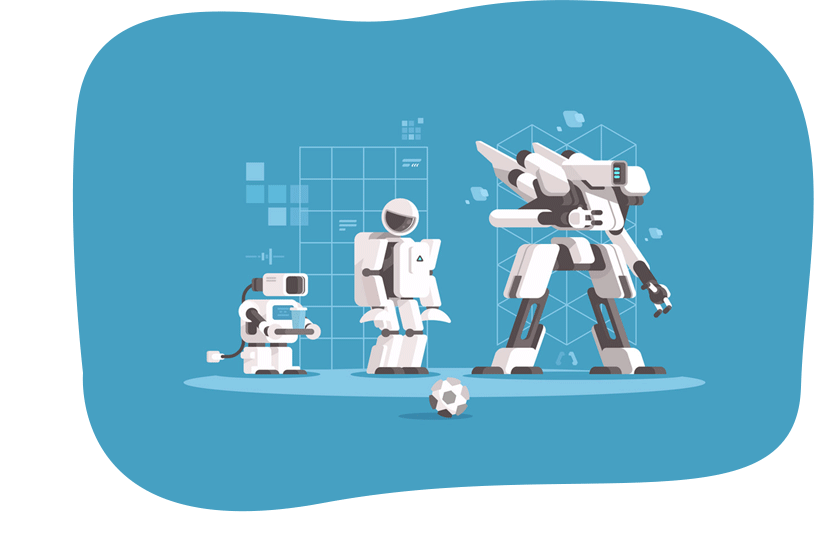- Why is Artificial Intelligence important for my business?
More and more companies are adopting advanced technology such as Artificial Intelligence (AI) into their business model. Similar to the websites and online spaces companies created in the late 1990s, this new tech is transforming from an innovation that can help a company get ahead to one that businesses must adopt just to stay competitive.
Depending on the specifics of your business, AI can often help to improve logistical efficiency and to automate processes that would otherwise normally require human attention. This can save your company both time and money, allow employees to focus on more important tasks and strategies, and give your business a way to know its customers in better and more insightful ways.
- How can Artificial Intelligence affect the growth of my business?
Because Artificial Intelligence (AI) improves over time, the benefits of adopting it will often last longer than those provided by a simple software or tech upgrade. Typically, when a business buys a new tool to use, it results in a one-time benefit, but purchasing a newer, better tool will, eventually and inevitably, be required when the previous one becomes obsolete. AIs have the advantage of iterative improvement, growing increasingly more capable at performing their assignments as they repeat them over and over.
Additionally, not only will AI help with the growth of your business, but it can also help you discover where it should be growing. Customer data often exists in incredibly large data sets, in volumes so large that no human being could ever parse it by hand. AI can systematically examine and analyze such data to give your business insight into your customers in ways previously thought impossible. That information can then inform you as to which customers to target with which services, and which areas of your business offer the greatest potential for growth and expansion.
- Is my business ready for Artificial Intelligence?
The simple answer to whether Artificial Intelligence (AI) could benefit your company is maybe. AI is usually not the only digital technology that a company will adopt when integrating advanced tech into its business model. AI is often applied through Big Data, Machine Learning, Cloud Computing, and the Internet of Things. Adopting AI is often part of an overall strategy of digital transformation, which involves transitioning a business to a new model that can more easily adapt and change as the pace of technology continues to accelerate.
Working with a technology consultant or a firm with experience in the field can help you determine whether AI is the right choice for your business and, if so, the most advantageous method for using it. If you are going to implement AI, you want to do so right. The way to achieve the best results is to partner with someone who thoroughly understands the technology and its application.
- When do I need Artificial Intelligence for my business?
You should probably incorporate Artificial Intelligence (AI) into your business very soon. More and more companies are adopting advanced digital technology to improve their bottom line and to manage the large amounts of data they collect through their websites, customer interactions, logistical information, and overall business processes. Rather than simply ignoring or deleting this information, companies are using AI to not only discover where the inefficiencies are within their business but also determine the best way of addressing those inefficiencies.
An important thing to understand is that the size of a business isn’t always the deciding factor for AI adoption, or even a major one. The value of Cloud Computing, for example, is that it allows a company that had previously been unable to afford a network infrastructure to now have access to advanced digital tech, along with servers and services around the globe.
- Is AI present or future?
Artificial Intelligence (AI) Is Not A Thing Of The Future; It Is Already Here
In fact, it’s already everywhere—when you use a smartphone, when you use an online chat window to speak with a customer service representative, when your car beeps at you because you are drifting out of your lane on the highway, when you make a vague request of Amazon’s Alexa and get the exact music you wanted in return. In all these cases, you are in some way interacting with automated AI processes.
AI is being integrated into our lives in ways large and small, perhaps most usefully to allow businesses to automate certain repetitive processes, create efficiencies, and reduce redundancies in areas we never before thought possible. Customers with questions are interacting with AI programs that determine what they actually need before they are connected with live customer service reps. Such streamlining reduces payroll costs and allows customer service issues to be resolved more quickly. Automated systems can predict a customer’s preferences, honing product recommendations for the individual. When applied effectively, AI can positively impact and enhance a busines at every level.
- What is Artificial Intelligence, and what are its advantages?
Artificial Intelligence, or AI, is the ability for computers to use algorithms (complex sets of instructions) and large datasets to perform specific tasks and, through many iterations, improve their ability to successfully perform those tasks over time. Machine Learning uses the data created by the AI’s processes to improve. In other words, AI can see its own results, learn from those results, and try to produce better results next time. And repeating a task a few million times allows the AI to get really good at it.
Distinguishing between Artificial General Intelligence (AGI) and Narrow Artificial Intelligence is important. AGI is the stuff of science fiction, with computers thinking like humans—it is often the bad guy in sci-fi movies. Narrow AI is the type being adopted by technology-savvy businesses.
The advantage AI offers is its ability to automate certain business processes and functions that are tedious and repetitive. This increases efficiency and frees up time for employees to handle more important assignments. For example, AIs can create and process invoices automatically, answer basic customer service questions, and make product recommendations.
- What is the importance of Artificial Intelligence (AI) in education?
Artificial Intelligence in education involves both risks and rewards. Because technology often advances more quickly than policy and regulation can keep up, the risk of unfair implementation arises, meaning that it can be incorporated without a focus on inclusion and equality. Additionally, the data fed to AIs is often personal data and must therefore be respected and protected from intrusions and other risks.
That said, AI can be an excellent tool for educators seeking the best methods for educational success. Regularly testing of students is increasingly the norm in many countries, and analyzing the information garnered from such tests can reveal the most effective ways to educate students and the areas students should focus more on in the future. The analysis can be part of an overall examination of educational patterns that AI can perform in a way that human beings simply cannot.
A positive reputation is a valuable asset. You deserve to be in control of what the internet says about you or your brand. We specialize in building, monitoring, and protecting digital reputations. Schedule time with our team to audit your existing digital presence and find ways to elevate and enhance your online impression.

















